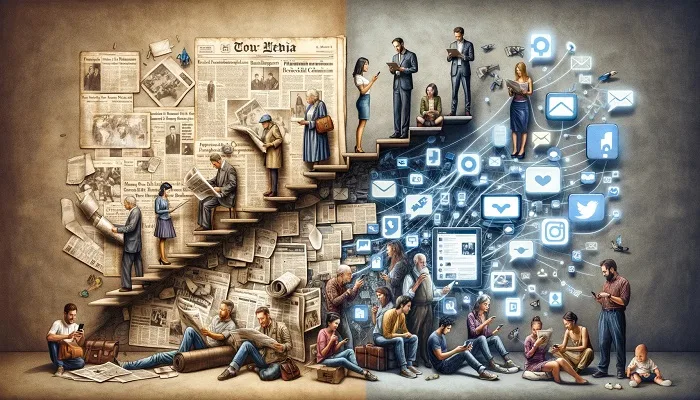The Impact of Social Networks on Our World

Social networks have revolutionized the way we communicate, access information, and interact with the world around us. From their humble beginnings as platforms for connecting friends and family, they have evolved into powerful tools that influence every aspect of modern life.
Understanding Social Networks
Social networks are digital platforms that facilitate online communication and interaction among users. They allow people to share information, ideas, personal messages, and other content such as videos and photos. These platforms operate on the internet, enabling users to connect with others across the globe in real-time.
At their core, social networks are built on the concept of community. They provide spaces where users can form networks based on shared interests, professions, or personal connections. This has fundamentally altered the way people discover, consume, and share information, turning social networks into pivotal elements of the digital age.
The Role of Social Networks in Modern Information Access
In today’s world, social networks have established themselves as primary sources of information. They have transformed the media landscape, allowing news and content to be distributed and consumed at unprecedented speeds. For many, social networks are the first point of contact with the day’s events, surpassing traditional media outlets in reach and influence.
The democratization of content creation has led to a more diverse range of voices and perspectives being heard. Users are not just consumers of content; they are also producers, contributing to the vast ocean of information available online. This shift has changed the dynamics of information dissemination, making it more participatory and inclusive.
However, the rise of social networks as information hubs also brings challenges. Issues such as misinformation, echo chambers, and the digital divide have emerged, highlighting the need for critical media literacy in the digital age.
The Allure of Social Networks
Social networks attract people for various reasons, from the basic human desire for connection to the need for self-expression. They offer platforms where users can present themselves in ways they choose, curating their digital personas and sharing their lives with others.
The instant gratification provided by likes, comments, and shares plays a significant role in their appeal. These interactions offer social validation, reinforcing the desire to engage with the platforms regularly.
Moreover, social networks serve as gateways to a vast array of content, catering to virtually every interest. Whether it’s for entertainment, education, or social activism, there’s a space for everyone. This variety keeps users engaged, making social networks central to daily life.
Benefits and Offerings of Social Networks
Social networks have brought numerous advantages, including enhanced communication, increased access to information, and the ability to connect with like-minded individuals. They have broken down geographical barriers, making it easier to maintain relationships over long distances.
For businesses and creators, social networks offer valuable platforms for marketing and monetization, providing opportunities to reach global audiences. For individuals, they serve as tools for learning, self-expression, and personal growth.

The Dark Side of Social Networks
Despite their benefits, social networks pose significant risks. Privacy concerns, cyberbullying, and the potential for addiction are among the key issues. The impact on mental health, particularly among young people, has become a growing concern, with studies linking excessive social media use to anxiety and depression.
The spread of misinformation and the manipulation of social networks for political purposes have also highlighted the platforms’ potential to harm society. These challenges underscore the importance of responsible use and the need for platforms to enforce safeguards.
Reflecting on the Social Network Revolution
Social networks have undeniably transformed our world, redefining how we communicate, learn, and interact. They have empowered individuals, shaped public opinion, and altered the course of politics and society.
As we navigate this ever-changing landscape, it’s crucial to balance the benefits of social networks with awareness of their risks. By fostering digital literacy and advocating for ethical standards, we can ensure that social networks continue to serve as forces for good, connecting us in ways that enrich, rather than diminish, our lives.
